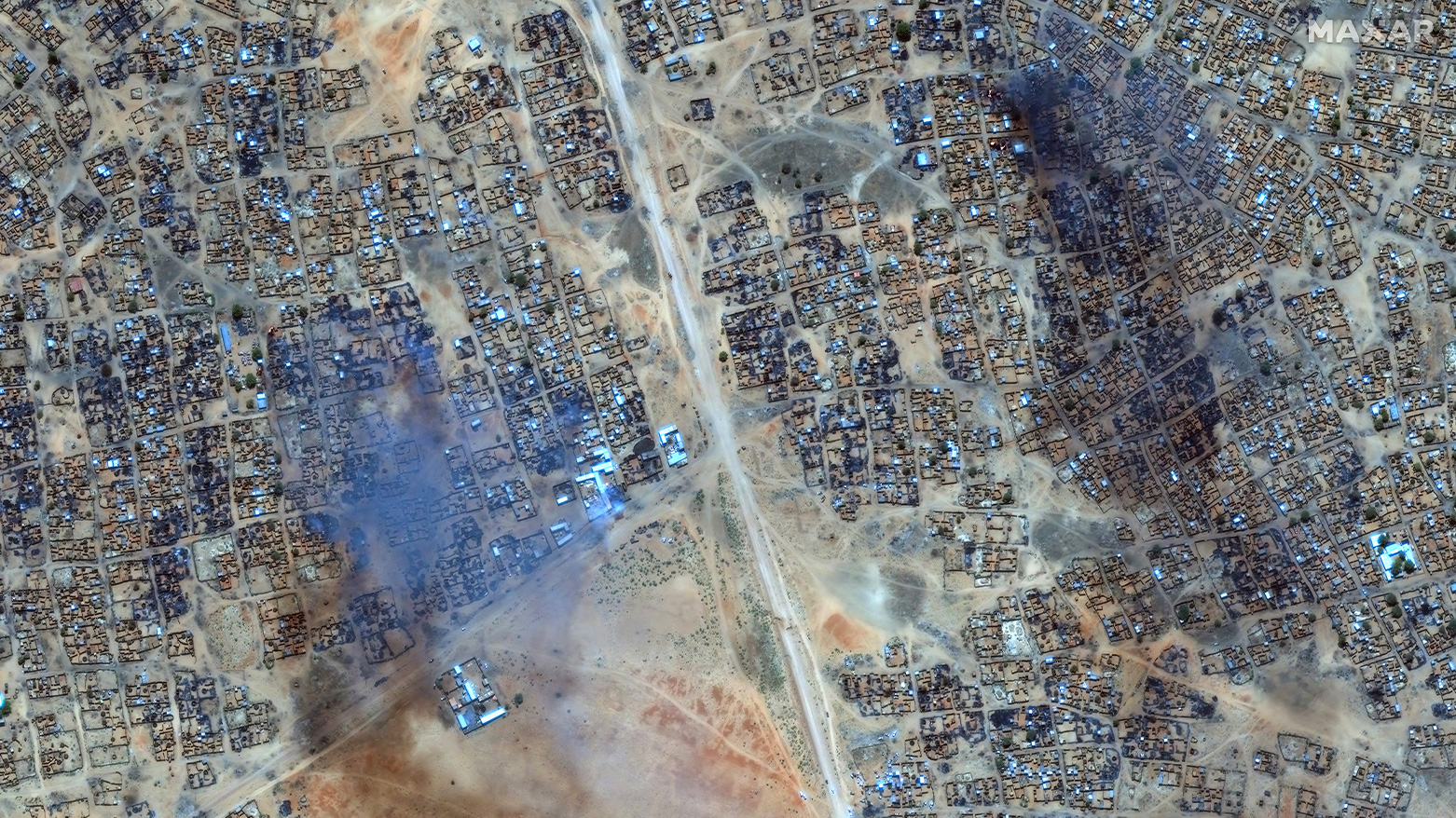UN Warns of Collapse as Darfur Civilians Massacred
The UN reported that the El Fasher and Zamzam camps—long considered precarious safe havens—were severely impacted by renewed clashes between Sudan’s military government forces and armed militias, particularly the Rapid Support Forces (RSF).

By Kamaran Aziz
ERBIL (Kurdistan24) – A humanitarian catastrophe is unfolding in Sudan’s Darfur region, where heavy artillery shelling in recent days has killed hundreds of civilians and displaced hundreds of thousands more, according to the United Nations. The dead include at least 12 humanitarian workers, and the attacks have devastated two of the largest camps for internally displaced persons (IDPs) in North Darfur, in what UN officials describe as one of the worst episodes of violence since the civil war erupted two years ago.
The UN reported that the El Fasher and Zamzam camps—long considered precarious safe havens—were severely impacted by renewed clashes between Sudan’s military government forces and armed militias, particularly the Rapid Support Forces (RSF). Amid the shelling, critical infrastructure was destroyed, health facilities collapsed, and water trucking services ground to a halt.
According to the UN Office for the Coordination of Humanitarian Affairs (OCHA), the shelling has forced massive displacement. Zamzam IDP camp, which previously hosted more than 400,000 people, now lies nearly abandoned. More than 332,000 people have fled Zamzam in the past few days alone, seeking refuge in already overwhelmed towns and host communities such as El Fasher, Tawila, and Dar El Salam.
“The bombs were falling on the hospital. The sick and their mothers were killed. Those of us who survived left with only our children on our backs,” said Hawa, a mother of three who was in a hospital within the Zamzam camp during the shelling, in testimony shared by the UN Children’s Fund (UNICEF).
This wave of displacement has unleashed a cascade of humanitarian crises. Health systems are stretched beyond capacity, water infrastructure is collapsing under fuel shortages, and local food systems are on the brink of collapse. In El Fasher, fuel shortages have caused a near-total suspension of essential water trucking operations, a lifeline for thousands.
According to the latest UN Flash Update, humanitarian organisations are raising alarms over escalating reports of sexual violence, forced recruitment of minors, and deliberate targeting of civilians, particularly in areas controlled by RSF elements. At least 25,000 new IDPs have been registered in El Fasher town, further straining already fragile services.
In Central Darfur, worsening malnutrition rates among children and pregnant women are becoming increasingly evident, exacerbated by the collapse of basic services and acute food insecurity. Humanitarian actors warn that famine-like conditions could soon develop if immediate interventions are not launched.
“In the past, we had three to four meals per day. For the past two years, giving [my children] one meal a day is a miracle,” Hawa added, reflecting the dire nutritional situation now common across displacement-affected areas.
Although the United Nations and its partners are delivering emergency food aid to regions such as Tawila in North Darfur, the scale of current operations is vastly insufficient compared to the immense needs. Fuel and supply shortages, combined with restricted humanitarian access due to ongoing violence, are crippling relief efforts.
The UN and humanitarian partners are urgently appealing for increased international funding and support, warning that without immediate action, tens of thousands of newly displaced families could plunge deeper into acute vulnerability and face catastrophic consequences.
The humanitarian community is also calling on all parties to the conflict to respect international humanitarian law, protect civilians, and facilitate unimpeded access for humanitarian aid.
As Sudan marks the second anniversary of its devastating civil war, the situation in Darfur stands as a grim symbol of the conflict’s toll on civilians—especially the most vulnerable, who now endure yet another round of trauma, displacement, and uncertainty amid an increasingly collapsing humanitarian environment.